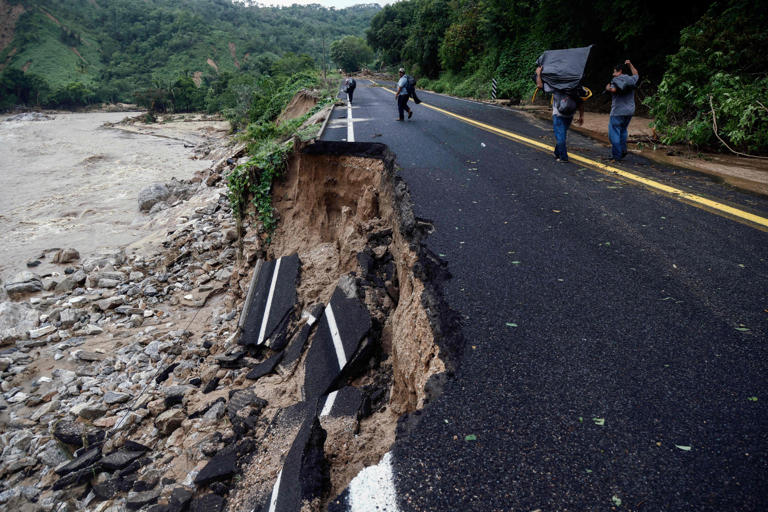Elites Meet: 70,000+ Attendees Flying to Dubai for COP 28 Climate Summit

Ladies and gentlemen, please return your seats and tray tables to an upright position, fasten your seatbelts and prepare for landing… That is the order more than 70,000 people will hear as they arrive mostly by private and commercial jets to attend the COP 28 climate conference that begins Thursday in Dubai.
The 2023 United Nations Climate Change Conference, known as COP28, in the United Arab Emirates is expecting close to a record turnout for the annual gathering of the globalist elites to vent their never-ending call for international climate action.
King Charles will be flying in especially to deliver the opening address as he joins tens of thousands of others who have eschewed the benefits of video conferencing in favour of boarding carbon-spewing aircraft for their travels even as flying creates more carbon emissions than any other form of transportation.
According to the U.N. Framework Convention on Climate Change (UNFCCC), the massed 70-000-plus attendees will be double the number of COP21 delegates in Paris, the landmark summit during which the Paris Agreement was adopted.

Men wearing thawbs walk past a billboard promoting the transition to renewable energies at the UNFCCC COP28 Climate Conference the day before its official opening on November 29, 2023 in Dubai, United Arab Emirates. ( Sean Gallup/Getty Images)
They will join more than 160 heads of member states (known as the parties) who will grace various events including the World Climate Action Summit.
The attendees will represent not only parties’ leaders and negotiating teams, but also business leaders, government officials, young people, climate scientists, Indigenous peoples, journalists, and other assorted stakeholders.
COP28 has faced a storm of skepticism from green campaigners and some elected officials mostly in the global north because its host, the United Arab Emirates, is a major oil-producing state.
The president of COP28, Sultan Al Jaber, is also the head of the UAE state-owned oil company ADNOC which looks to profit from the continued use of fossil fuels across the planet.
FLASHBACK: John Kerry defends China, the world’s single biggest emitter, from criticism as he scolds the rest of the world to do more
Pope Francis was planning to go but had to cancel for health reasons as he recovers from influenza, the Vatican said Tuesday.
U.S. President Joe Biden spoke at COP27 last year but is not planning to attend COP28 this year while U.S. climate envoy John Kerry will fly in to lead the U.S. delegation.
In 2019, when he traveled on a private jet to Iceland to receive a climate change award, Kerry was asked why he chose to fly private while telling others to mind their global emissions.
He responded by noting his own self importance, saying private jets are “the only choice for someone like me.”
“If you offset your carbon, it’s the only choice for somebody like me who is traveling the world to win this battle,” Kerry said.
Chinese President Xi Jinping is also not expected to attend although he has solemnly pledged the country will reduce its use of coal from 2026.
But in April, China approved a major surge in coal power — a move Greenpeace said prioritised energy supply over the emissions reduction pledge — fuelling concerns Beijing will struggle to ever deliver on its ambitious targets as the rest of the world looks to ways to reduce dependence of fossil fuels.
India’s Prime Minister Narendra Modi will be there.
China, the U.S., and India are the world’s top three emitters of planet-warming greenhouse gases.
The U.N’.s Food & Agriculture Organization (FAO) will also be represented to deliver an edict telling prosperous Western countries to save the planet by stopping meat consumption and embracing vegan alternatives.
FAO’s first-of-its-kind document will tell wealthy nations that “over-consume meat” to limit their intake as part of a broader global effort to reduce greenhouse gas emissions by embracing alternative sources of protein.
Plant-based diets are being urged as part of a global push to ditch meat across a multitude of government and non-government authorities.
Follow Simon Kent on Twitter: Follow @SunSimonKent or e-mail to: skent@breitbart.com
Israel / Middle East London / Europe Politics
Billions of people expect to be displaced within the next 25 years because of severe impacts from climate change, according to a new study.
Scientists and politicians alike continue to raise the alarm about the concerning impacts of global warming as more research reveals that climate change increases the severity of some natural disasters, ranging from floods and wildfires to hurricanes and drought.
Some areas of the world are more at risk of suffering from the warming climate than others, and a study by Ipsos revealed that nearly four in 10 people believe they will lose their homes from impacts associated with the changing climate.
The Ipsos study was published on Monday, just days before the COP28 United Nations Climate Change Conference. The study, which surveyed 24,220 adults across 31 countries from September 22 to October 6, provides a look into how people across the globe feel about climate change.
Most survey takers were between the ages of 16 and 74. Newsweek reached out to Ipsos via email for comment.
Thirty-eight percent of survey takers said that it's likely they'll be displaced in the next 25 years from the impacts of climate change, although the number leaps for areas like Turkey, Brazil and India, where 68 percent, 61 percent and 57 percent of those polltakers respectively believe they'll lose their homes.
Results from each of the 31 countries equate to more than 2 billion people fearing they'll be displaced if the survey is representative of the global population.
The United States ranked below average for the concerns about displacement, with 35 percent of Americans believing they'd lose their homes because of climate change. Of the 31 countries surveyed, residents in the Netherlands were the least concerned about losing their homes, with 19 percent of respondents believing they'd be displaced in the next 25 years.
"As the world's leaders gather at COP, this latest Ipsos research reveals a stark reality—with the majority of people not only witnessing the severe impacts of climate change but bracing for its escalation," Ipsos Chief Sustainability Officer Lauren Demar said in a statement. "A staggering seven in 10 expect climate change will profoundly affect their local areas within the next decade."
Of those surveyed, 57 percent claimed to have already witnessed "a severe impact of climate change where they live," with much higher numbers reporting severe impacts in areas like Mexico, Brazil and Turkey. This year, Brazil battled unprecedented drought, Mexico was hit by several devastating hurricanes—one of which intensified in record time—and Turkey was hit by a horrific earthquake that killed thousands.
Nearly 60 percent of survey takers felt that businesses in their countries weren't doing enough to combat climate change, with similar numbers reporting they felt their governments weren't providing enough information about how to combat climate change.
"Our research underscores a critical disconnect," Demar said. "There is a pervasive sentiment that both governments and businesses are not matching the public's concerns with equivalent levels of action and transparency."
Correction, 11/29/23, 6 a.m. ET: The first paragraph of this article was updated to clarify that billions of people expect to be displaced, not that they are expected to be displaced.
Related Articles

No comments:
Post a Comment